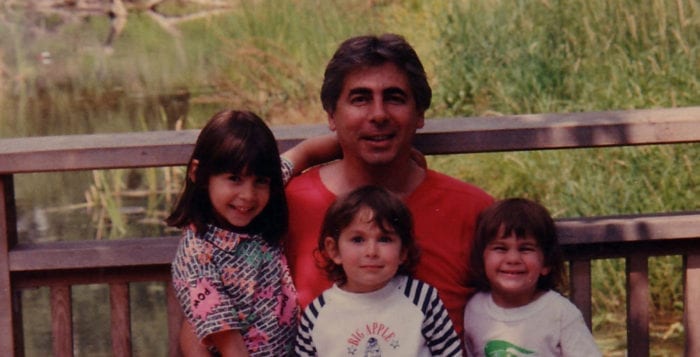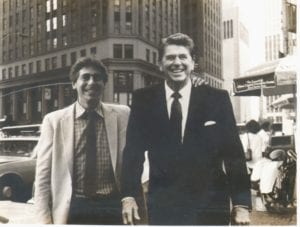When I think of my dad, I am reminded almost immediately of his loving nature and his playfulness. Now many dads I have met behave lovingly toward their families, so that is not what set mine apart. It was the other half of my description: His instant readiness to play and his aptitude for making up games on the spot.
My dad was an ambitious businessman, and he worked long hours every week. But Sundays were his day to relax and his unconstrained self would emerge. No wonder Sundays were my favorite day. He would begin the morning by getting up somewhere before 6 a.m., and start rustling around in the kitchen. The son of a farmer, he got up early all his childhood, and just because he moved to the city in his teens he wasn’t about to change the diurnal cycle that had been hardwired into him.
He was one of nine children and referred to himself when he was growing up as “Middle Child.” To hear his siblings tell of him, he was the one who routinely organized the pack into daily games in between their farm and school chores. Isolated on a large farm from other children and certainly without any municipal playgrounds in their lives, they created their own fun. That skill served him well not only for us, his children, but for the entire neighborhood. He was the undisputed Pied Piper wherever we were on any given Sunday.
Sundays belonged to my mother. My dad made sure of that. He would concoct a huge breakfast that was never the same from one week to the next. Into a dozen eggs, he would toss whatever leftovers he could find from the fridge, cook the mixture slowly with generous amounts of onions and other veggies and “mystery spices” and present the masterpiece to the salivating family gathered around the kitchen table. I always tried to sleep in on Sundays, but the marvelous smells that filled the apartment unfailingly coaxed me out of bed. Only my mother was impervious and slept through the ruckus of our trying to identify the ingredients as we ate.
My dad would then take us out to the park — Central Park that is — and we would roam over hills and dells, always yodeling in the many tunnels along the pathways. The echoes were hugely satisfying. He would set a rock on top of a boulder, give us each five small stones, and ask us to knock the rock off the boulder from 10 paces.
We’d have a vague destination within the park each Sunday, anywhere from the carousel to the rowboat lake, to Shakespeare Garden to Sheep Meadow with its multitude of baseball games in progress. He was good at pitching horseshoes, and as we strolled by the quoits section the men would offer him a turn. If we had thought to bring a basketball, we might shoot some baskets on the courts.
When the weather was bad, we would wander through the Metropolitan Museum.
Wherever we went, regulars in the park usually recognized us because my younger sister had Down syndrome, a condition that was almost never seen in public places. We stood out, I guess, and my sister, who loved to watch the baseball games and came to know some of the adult players by name, would cheer loudly with each solid hit.
As the day wore on, my dad would buy a box of Cracker Jacks from a park vendor and we would share the contents. By the end of the afternoon, we would head to a predetermined grove of trees where my mother would be waiting on a blanket with supper. I remember how happy my parents were to see each other — you would have thought they had been separated for weeks. Maybe it was just the prospect of some homemade dinner that sealed the day with joy for all of us.






